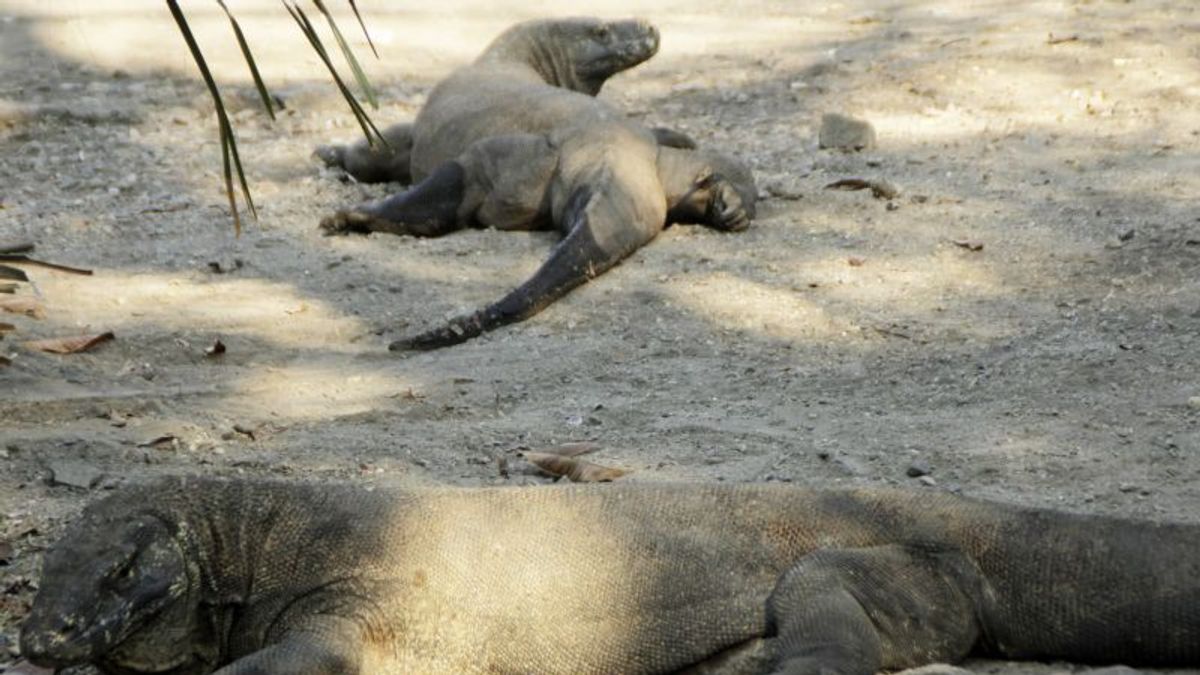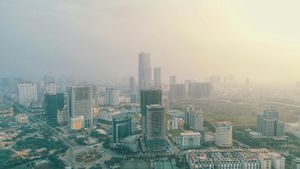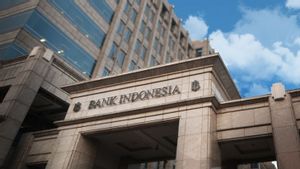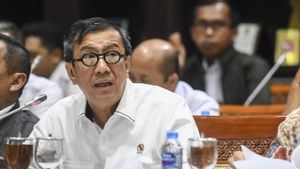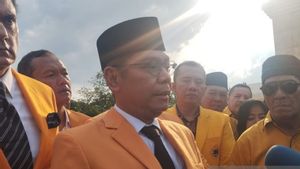JAKARTA - The Indonesian House of Representatives highlighted the increase in the ticket price for Komodo National Park, East Nusa Tenggara (NTT) to Rp3.75 million per person and will take effect on August 1, 2022. Member of Commission IV of the Indonesian House of Representatives, Yohanis Fransiskus Lema, stated that his party rejected the practice of commercialization on the island. Komodo and Padar Island.
According to him, the limitation of the visitor quota, which aims to maintain conservation by suppressing the negative impact of tourism, should not lead to efforts to commercialize tourism by certain groups or groups.
"Why are visitor restrictions that are said to be carried out to maintain conservation instead of becoming an arena for commercialization? This is my strong criticism of the Ministry of Environment and Forestry (KLHK) as the guardian of conservation in Indonesia," said Yohanis Lema in Jakarta, Sunday, July 17.
Yohanis admitted that he supports the limitation of visitors in the study of the Tourism Capacity Supporting Capacity (DDDTW) carried out by experts. However, he said, the main thing that should be questioned in the DDDTW study is recommending restrictions, but at the same time the Ministry of Environment and Forestry grants permission for one BUMD company as the sole manager.
"It's not true in the name of conservation, then the answer is by imposing a high entry fee. Does this country only belong to those who pay? Where is social justice? Moreover, if the policy is applied to domestic tourists who are children of the nation itself," he explained.
According to Ansy, the imposition of tariffs related to wildlife and nature tourism should refer to or have references related to ticket fees applied in other regions/countries as parameters for similar tours. The man who is familiarly called Ansy Lema also considered that in order for funds to enter optimally into the local government treasury, ticket sales could be done through digital platforms or e-commerce.
"Funds from ticket sales must also be returned and used for conservation area management for the sustainability of wildlife on Komodo Island," he said.
Ansy added, there were two main irregularities that became important notes. First, limiting visitors but opening a proposed tour package called Experimentalist Valuing Environment (EVE) to Komodo Island.
The EVE tour package is managed by one of the BUMDs with IDR 15 million per package whose allocation proposals are (1) IDR 2 million Non-Tax State Revenue (PNBP) to the government, especially the Komodo National Park Hall; (2) IDR 200,000 Regional Original Revenue (PAD) to the Provincial and Regency Governments; (3) IDR 100,000 insurance fee; (4) IDR 7.1 million conservation fund; (5) Rp 5,435 million fee (wages) for the BUMD company; (6) IDR 165,000 tax fee. Moreover, looking at the composition, continued Ansy, the amount of money that goes to PAD is very small, compared to the wages that go to the BUMD.
“Why is there suddenly a proposed tour package, even though the government wants to limit the visitor quota? On the other hand, the central government seems to prioritize the BUMD companies. The government's job is to make regulations, but why then want to play in the realm of tour service providers to Komodo and Padar Islands? Provide opportunities for local residents to participate in providing tour services," said Ansy.
"Don't let visitor restrictions be used as an excuse to give business concessions, even business monopolies to certain companies," he added.
Second, related to the imposition of conservation costs on ordinary people through tariff increases. According to Ansy, the cost of conservation cannot be fully borne by the community, in this case people who want to travel. According to him, the policy taken by the government above is the marginalization or marginalization of small communities.
With the increase in rates for Komodo National Park (TNK) which reached Rp3.75 million per person and the EVE package worth Rp15 million, the government indirectly restricted small communities from visiting Komodo and Padar Islands.
“The government must think about the multiplier effect of this policy. Only the rich can go to Komodo and Padar Islands. Plus, this policy cuts the economic opportunities of the surrounding community, especially local tourism actors," said Ansy.
Ansy reminded, if you want to limit visitors and maintain conservation, the method cannot be done in terms of price increases. The government, he said, could impose restrictions by regulating the traffic of visits on a scheduled basis. Therefore, he urged the Ministry of Environment and Forestry to be able to look at policies on Komodo and Padar Islands comprehensively.
“The Ministry of Environment and Forestry must make policies with a clear scientific basis and considerations. KLHK is the guardian of conservation. There should not be certain interests that ride conservation, even though the hidden purpose is to get fantastic economic benefits. When it comes to conservation, how come it ends with commercialization through a business monopoly?” So Ansy.
The English, Chinese, Japanese, Arabic, and French versions are automatically generated by the AI. So there may still be inaccuracies in translating, please always see Indonesian as our main language. (system supported by DigitalSiber.id)
